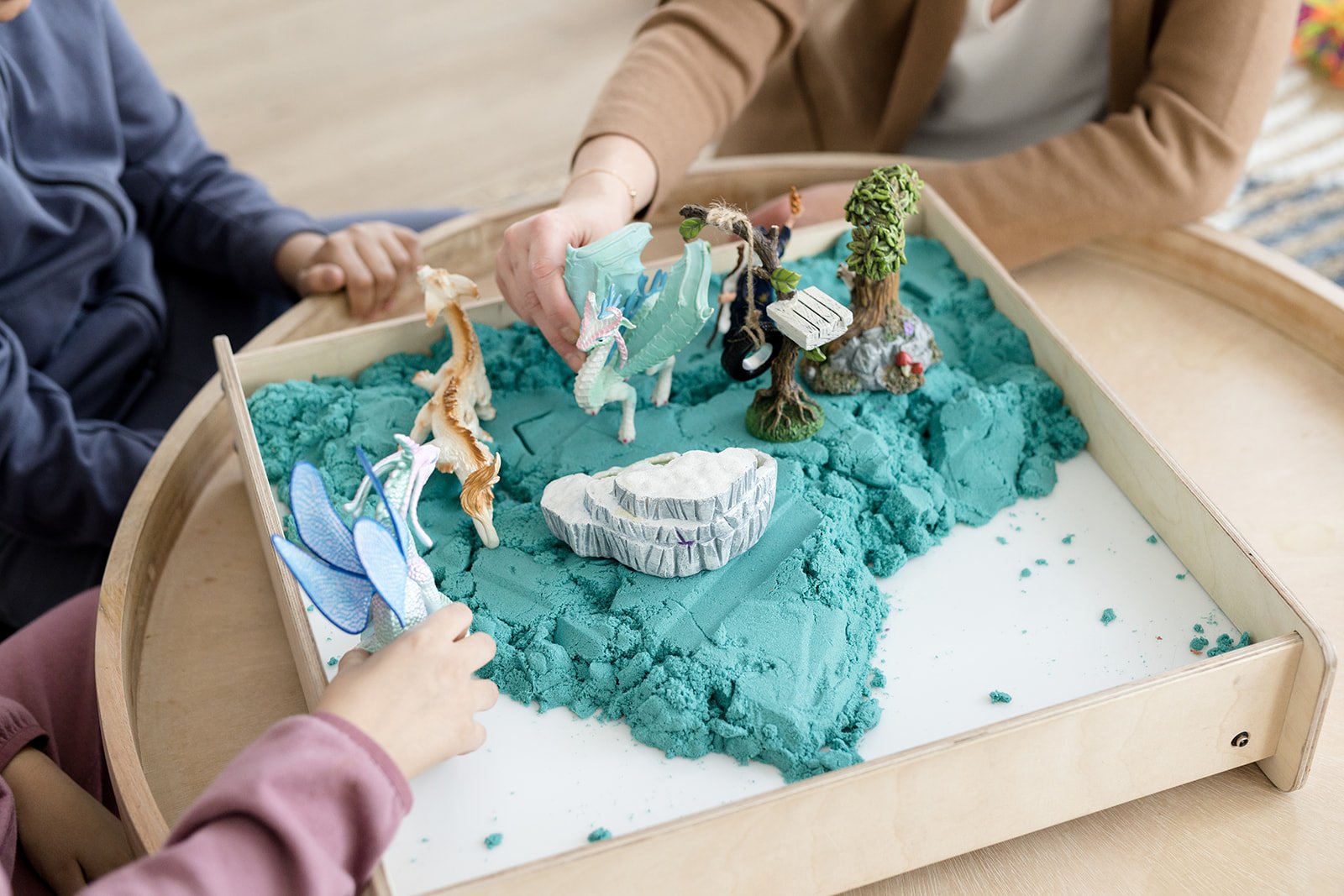Imaginative Play and The Significance for Children with ASD
Imaginative play, also known as pretend play, is such a vital part of childhood development. For children with Autism Spectrum Disorder (ASD), engaging in imaginative play can be a bit challenging, however the benefits are truly immense. Parents at Creative Sky Psychology often ask how imaginative play can be beneficial for children with ASD. Here are some ways ways that parents can support and encourage imaginative play in the home.
The Significance
So Why is Imaginative Play Important?
Imaginative Play actually supports many foundational skills for child development support success well into adulthood! The following skills are enhanced with Imaginative Play.
Social Skills Boost: Through imaginative play, children with ASD can learn to interact with others, understand social cues, and develop empathy.
Communication Enhancement: Pretend play can improve both verbal and non-verbal communication skills by encouraging children to express themselves in various scenarios.
Cognitive Flexibility Development: Imaginative play helps in developing cognitive flexibility, which is essential for adapting to new information and changes in the environment.
Problem-Solving Practice: Pretend play allows children to hone their problem-solving skills in a low pressure, creative setting.
Emotional Expression and Regulation: Imaginative play provides a safe space for children to explore and express their emotions.
How to Support Imaginative Play for Children with ASD
Create a Safe and Structured Environment: Provide a specific area for imaginative play with clear boundaries and expectations, which can help children with ASD feel secure.
Use Visual Supports: Employ visual aids such as storyboards, picture cards, and role-playing costumes to help children understand and engage in pretend scenarios.
Model Play Behavior: Actively participate in imaginative play by demonstrating different roles and simple scenarios, encouraging the child to join in and take the lead.
Incorporate Interests: Utilize a child's specific interests as a way to initiate and sustain engagement in imaginative play.
Simplicity and Scaffold: Start with simple, concrete play scenarios and gradually increase complexity as the child becomes more comfortable. Provide prompts and supports as needed, gradually reducing assistance to foster independence.
Encourage Peer Interaction: Organize playdates or group activities with peers to provide social models for imaginative play. Guided play sessions can be particularly beneficial for learning from peers.
Use Technology: Explore apps and digital tools designed to support imaginative play.
Therapeutic Interventions: Consider occupational therapy, play therapy, and social skills groups specifically designed for children with ASD to provide professional support for developing imaginative play skills.
Exciting Activities to Encourage Imaginative Play
Role-Playing Games: Act out everyday activities like cooking, shopping, or doctor visits.
Storytelling: Create stories together or use storybooks to inspire play scenarios.
Doll and Puppet Play: Use dolls, action figures, or puppets to act out different roles and scenarios.
Arts and Crafts: Create props or costumes for pretend play.
Outdoor Play: Engage in activities like building forts, playing house, or exploring nature to stimulate imaginative play.
Supporting imaginative play in children with ASD requires patience, creativity, and flexibility, but the benefits to their social, emotional, and cognitive development can be truly profound.


